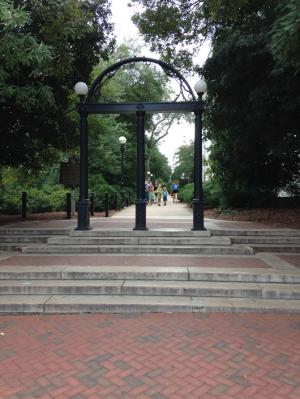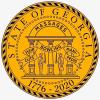UGA Made Athens What It Is Today
Pub Notes
I was invited to speak on Tuesday, Feb. 17 to a luncheon meeting of the Osher Lifelong Learning Institute (OLLI), a UGA group for people who want to keep on finding out about the world around them. My topic was “The Making of Modern Athens,” and as I write this, I’m also still working on the speech, which at this point is still in the future, though it will be in the past by the time you read this, if the weather didn’t knock it out. Got it? Such are the vagaries of the weekly newspaper schedule.
I have been thinking a lot recently about the making of modern Athens, for two reasons. The first is the fact that Kathy and Grady Thrasher, through their Sunnybank Films, with their cinematographer Matt DeGennaro and their staff, are making a movie here with the working title Athens in our Lifetimes. They are interviewing a lot of people to elicit their impressions of just what it is that makes Athens Athens.
The other reason I’ve been thinking a lot about Athens is, of course, the new book, The Tangible Past in Athens, Georgia, which came out toward the end of 2014. Reading through The Tangible Past will give you a pretty good understanding of Athens in our lifetimes and in any other, because it starts out down at the North Oconee River at the founding of Athens and carries us forward from there in big chunks of conversation about our town by people who love it enough ferret out the facts and the photographs and tell us where the bodies are buried.
I guess I am an appropriate speaker for OLLI, because modern Athens seems to have been made during the part of my lifetime that I have spent here. By “modern Athens,” we probably mean the hip city of charming neighborhoods, music, craft beer, sidewalk cafés and progressive politics that is always making somebody’s list of the 10 or 20 best places to retire or visit or attend college or raise a family or raise hell: the same city that has a 37-percent poverty rate.
In any discussion of Athens, the University of Georgia is the 800-pound bulldog in the room. In any lifetime, the University of Georgia is what makes Athens special, and in fact it is what made Athens in the beginning. Athens was a sawmill on the river until John Milledge ’n them ran into Daniel Easley, who just happened to have some fine land up there on the hill above the river that he could let them have for a mere $4,000, while he kept the other part just in case they really did carve a college out of the wilderness.

Photo Credit: Pete McCommons
Well, they did, and by the time I got here, Athens could still be described as a quiet college town with pretty much a small, backwater state university, where the majority of the faculty were themselves UGA graduates. All of that was about to change, and the college changed before the town did. First, it was integrated, in the sense that it was forced by the federal judiciary to admit two African-American undergraduates in spite of mobs and riots and Confederate flags. What really changed the University of Georgia in my lifetime, though it happened while I was gone, was the acknowledgement by the governor and the legislature that pulling UGA out of the backwaters of academia would take money—for faculty, students, books and buildings. The purse strings loosened, and the jobs opened up, bringing in a flood of young faculty from the graduate schools of the North and the Midwest, young assistant professors who were not from around here, who did not share Georgia views on race or Vietnam or equal rights. They shook up the university and eventually the town. They attracted students who welcomed ideas as well as touchdowns.
And of course the flip side of the legislative largesse was the insistence that the university be run like a business and the beginning of the corporatization of the college—a top-down, hierarchical control system imposed upon professors accustomed to collegiality, causing a great struggle for the heart and soul of the university that radicalized even English instructors. While this war was still raging on campus, the Vietnam War came to its ignominious end, and a whole lot of students who were in college to avoid the draft didn’t have to do either, anymore. That meant Athens had a lot of people who had come here for the university and had grown fond enough of our town that they chose to stay here after it was no longer necessary. Thus began a period when a lot of bright people began to look around for something to do other than go to school. Many of those who could come up with the capital started businesses, and some of that capital came from endeavors frowned on by the legislature. These young businesses made alternative newspapers possible and gave people like me something to do.
And, of course, there was the music. But you already know about that.
Keywords
More by Pete McCommons
-
Voting Absentee: Necessary But Not Easy
Pub Notes
-

Be Ready When National TV Comes Calling
Pub Notes
-










comments